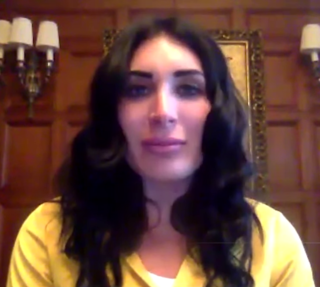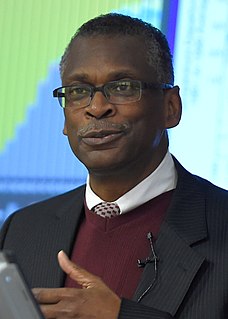A Quote by Anne Applebaum
It isn't citizens, or Congress, who decide how our information network regulates itself. We don't get to decide how information companies collect data, and we don't get to decide how transparent they should be. The tech companies do that all by themselves.
Related Quotes
Whether it's Facebook or Google or the other companies, that basic principle that users should be able to see and control information about them that they themselves have revealed to the companies is not baked into how the companies work. But it's bigger than privacy. Privacy is about what you're willing to reveal about yourself.
Many times people ask me, "What is sin and what is virtue? And how to decide?" If you decide your decision will be wrong. If you choose you will be wrong. All choice is wrong. There is no way to decide. There is no need to decide what is sin and what is virtue. You only need a transparent mind, a clarity, a thoughtless mind, a no-mind, a mirror-like consciousness. In that consciousness WHATSOEVER HAPPENS is virtue. In that consciousness WHATSOEVER CANNOT HAPPEN is sin.
Data isn't information. ... Information, unlike data, is useful. While there's a gulf between data and information, there's a wide ocean between information and knowledge. What turns the gears in our brains isn't information, but ideas, inventions, and inspiration. Knowledge-not information-implies understanding. And beyond knowledge lies what we should be seeking: wisdom.
We feel that our actions are voluntary when they follow a decision and involuntary when they happen without decision. But if a decision itself were voluntary every decision would have to be preceded by a decision to decide - An infinite regression which fortunately does not occur. Oddly enough, if we had to decide to decide, we would not be free to decide
Who needs checks and balances when the left, seemingly, knows and can decide right from wrong? When the left can decide what can be said and what cannot be said? When the left can decide how much money you're allowed to make or whether or not you deserve health care? It is a quest for power. And, it is dangerous.
Generally you should act somewhere between P40 and P70, as I call it. Sometime after you have obtained 40 percent of all the information you are liable to get, start thinking in terms of making a decision. When you have about 70 percent of all the information, you probably ought to decide, because you may lose an opportunity in losing time.

































